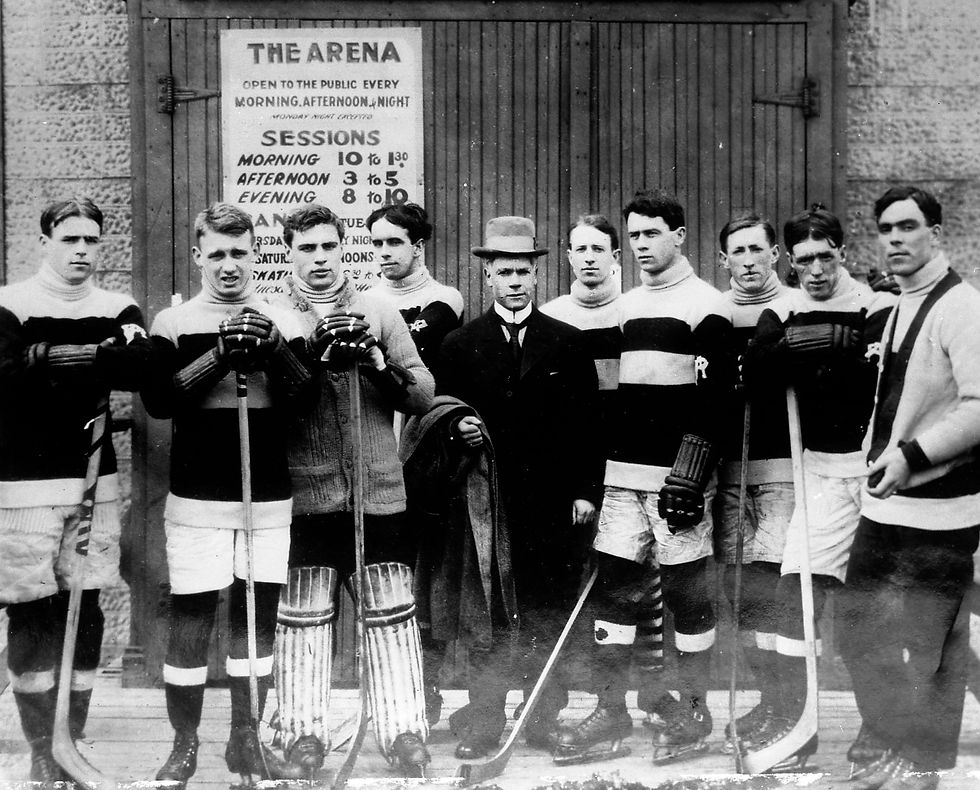They came bearing nicknames
- Diane Imrie
- Feb 25, 2021
- 3 min read

Do you ever wonder how a team comes up with their name? In this day of social media and online voting often it is the result of a contest with people providing their feedback on what they think a team should be called.
A most recent example of this was the naming of the newest addition to the Canadian Football League, the Atlantic Schooners (with Thunder Bay’s Anthony LeBlanc as one of the owners).
Over the years some teams have used popular voting to determine names, or they have been christened by their owners based upon personal choice or the company or product that the owners produce. Sometimes teams are presented with a variety of options before settling on one name.
A website dedicated to listing rejected professional sports teams names notes that the Dallas Cowboys were originally going to be called the Steers. The Kansas City Chiefs the Mules, Royals or Stars and the Toronto Raptors could have been known as the Bobcats or Dragons.
In hockey history, the Minnesota Wild won out over six finalists that included the Blue Ox, Northern Lights, White Bears, Freeze, and Voyageurs. The Toronto Maple Leafs were originally called the Arenas when they began in 1917 as they were owned by the Arena Company. They then became known as the St. Patrick’s to reportedly appeal to that city's large Irish population. When Conn Smythe acquired the team he renamed it the Maple Leafs in 1927 with some suggesting it was because he had fought for the Maple Leaf Regiment during the First World War.
One search to discover how a local hockey team got its name began a few years back when we received an inquiry at the Northwestern Ontario Sports Hall of Fame from someone who was trying to locate a picture. He wanted to know if we had a photograph in our collection of the 1911 Port Arthur Bearcats, who challenged Ottawa for the Stanley Cup. When we responded to this individual that in fact the team was known at that time simply as Port Arthur they responded back that we must be mistaken as this team was listed as the ‘Bearcats’ in practically every list he had seen on the internet, including from some very reliable sources.
With that came our challenge to hunt down when exactly the Port Arthur Senior Hockey Team officially became known as the Bear Cats.
As it turned out the origins of the name can be traced back to the 1934-35 Thunder Bay Senior Hockey League season. Fort William had claimed the district title three years in a row and was looking to make it four.
They were well on their way to victory, leading the best-of-5 series 2-1. The fourth game saw Fort William up 4-1 with four minutes left in the second period when Port Arthur staged a comeback that was talked about for years to follow. Netting eight goals over the next 25 minutes of action, including a hat trick in the final two minutes of play, they forced a fifth and deciding game.
In the stands that night was O.F. Young, editor of the News-Chronicle, and an ardent hockey fan. He was so impressed by the fighting spirit of the Port Arthur players that he wrote a few notes on the game and gave them to his sports editor to supplement his usual story. The phrase that came to him to describe the courage and tenacity of the team was ‘they played like Bear Cats’, a small animal noted for such characteristics.
Before publishing the article, coach Albert Pudas was asked if the name was suitable and after conferring with his team all agreed with the new name, suggesting, however, that they not adopt it officially, until they actually won the playoffs.
And so it was with their 2-1 victory over Fort William on March 8, 1935, that a new district champion was crowned, and a new team name was born. With crests of Bear Cats (originally spelled as two separate words) adorning their uniforms the team proudly advanced along the trail to the Allan Cup. They lost to the Halifax Wolverines in the final.
The Bear Cats eventually went on to serve as Canada’s representatives at the 1936 Olympics, claiming a silver medal, our nation’s only medal at those Games.
So the next time you have a bit of time on your hands, spend some time searching out the origins of your favourite team’s name so when you cheer them on you will know a little bit more about their history.
Until next time keep that sports history pride alive.
Originally posted on January 17, 2019






Comments